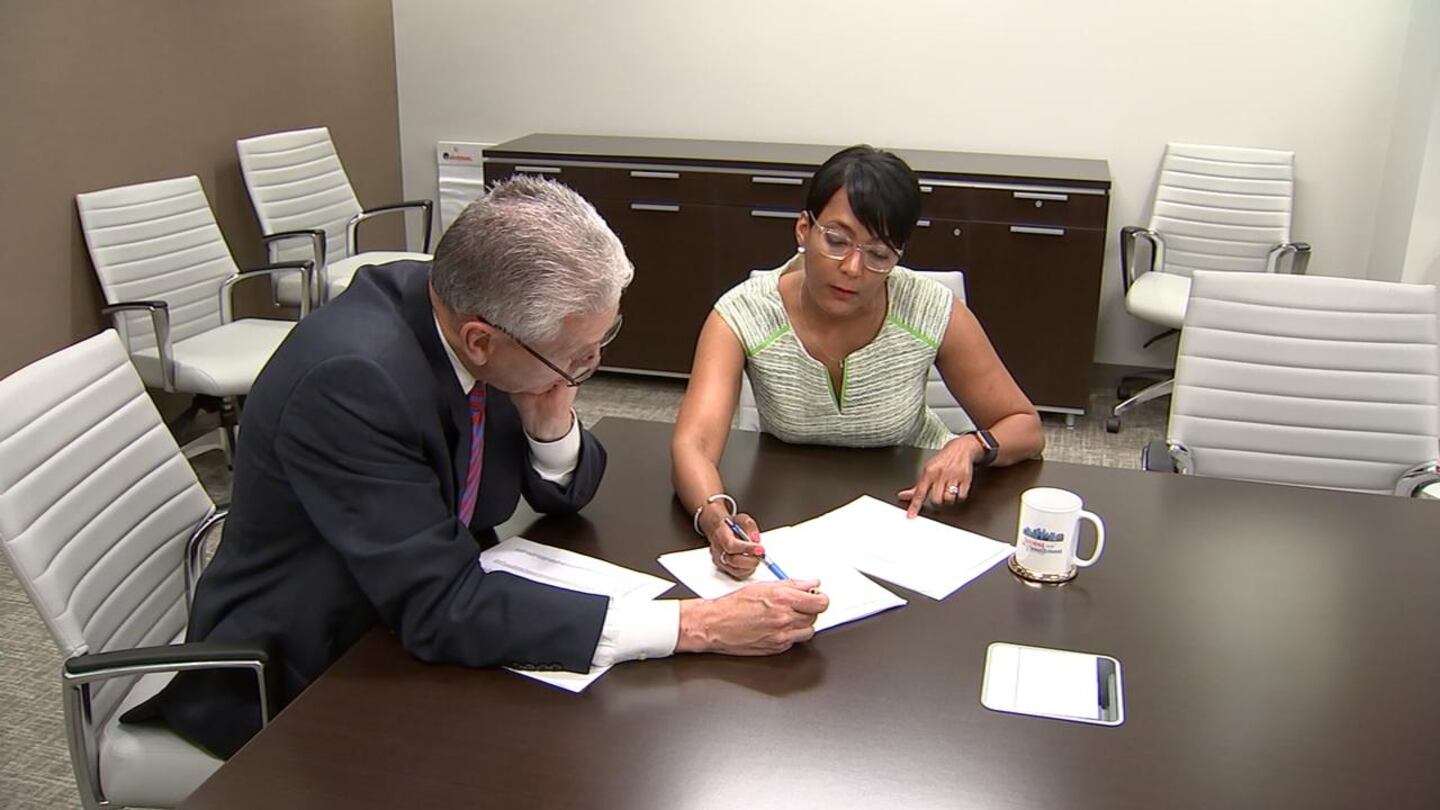ATLANTA — Channel 2 Action News has learned that Atlanta City Councilwoman Keisha Lance Bottoms, one of the leading candidates for mayor this year, has failed to pay the full water bill for her southwest Atlanta home nearly 70 percent of the time since early 2008.
Bottoms didn’t dispute the findings presented to her by Channel 2 Investigative Reporter Richard Belcher, but repeatedly offered as her defense, “I do pay every month. Then there are times that I overpay.”
Channel 2 examined 111 months of Atlanta Watershed billing records provided by a whistleblower after the Department of Watershed Management refused to provide records for all council members. Channel 2 filed a formal request for those records using the Georgia Open Records Act March 21. Watershed has refused to respond to repeated follow-up requests.
Asked by Belcher if “anyone in Watershed has been looking after you," Bottoms responded, “Absolutely not.”
Bottoms added, “I think that if my bill should have been cut off, then so be it, because I don’t want anybody to think that I am doing something out of the ordinary or that I’m getting special treatment, because I’m not.”
The Channel 2 investigation found that the pattern of failing to pay her water bill in full was consistent over the nine years of records we examined. Twelve times Bottoms overpaid her monthly bill; 24 times she paid the exact amount. But 75 times she failed to pay enough to leave the balance at zero.
From May 2010 until June 2012, the billing history showed that Bottoms never reached a zero balance on her account. From March 2015 until October 2015, her account averaged an unpaid balance of $741.
“I do think it matters,” Bottoms told Belcher, “but I also think that you can’t mention that without mentioning that there are months that I overpay.”
TRENDING STORIES:
- Dozens of cases involving officers in brutality case thrown out
- Teen girl accused of killing grandparents faces her family in court
- Basil Eleby will not be 'scapegoat' for I-85 fire, defense team says
Bottoms said, like many water customers, her home has been overbilled on occasion. She cited an $880 bill last November, which she disputed. She showed Belcher a record that indicated the city had reduced part of that charge.
“I can’t speak for the public, but I think it’s important that the public knows that there are months that I carry a credit with the water department and that I pay my bill. I pay each month," she said.
Bottoms earns $60,300 as a member of the Atlanta City Council, and she has served the past two years as executive director of the Atlanta Fulton County Recreation Authority, a position that carried a salary of $135,000.
Watershed sent a statement that it is working with Bottoms to resolve the dispute that began last fall but declined to comment further on her specific account.
The statement says 13 percent of single-family residential accounts carry a balance, and the city will not shut them off as long as they are making payments.
Here is the full statement from Watershed:
As you know, we cannot discuss the paying habits of specific customers, and we suggest you contact the account owner.
However, we can share that the account owner makes payments each month, and has recently disputed a bill that may have been issued improperly. We are working with the customer to come to a resolution.
At any given time, about 13 percent of single-family residential accounts carry a balance. Accounts can carry a balance for any number of reasons, but as long as the account is active and the account owner is making payments, the Department of Watershed Management will not disconnect water service. DWM recently offered an amnesty program for overdue water and sewer bills. The program allowed both residential and commercial customers to enter into payment plans to help settle their accounts without facing penalties. More than 3,000 customers contacted the Department about the amnesty program, with more than 600 account owners enrolling in a plan. Nearly all of these accounts were single-family residential.
Cox Media Group





